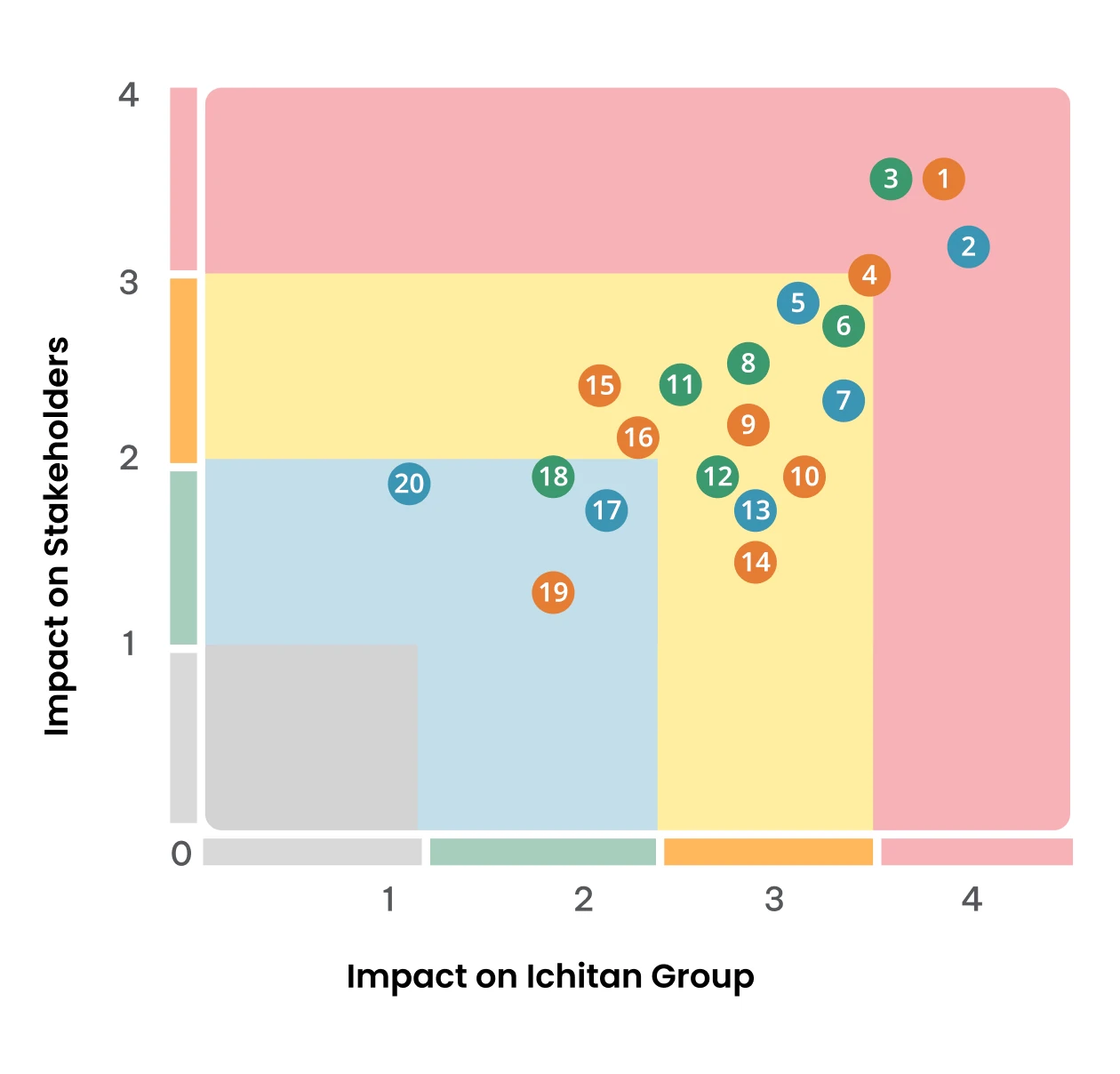
Materiality Assessment
Ichitan Group Public Company Limited has annually assessed matters that are significant to sustainable business operations, which has determined content according to the GRI Sustainability Reporting Standards,
by considering both internal and external factors that significantly affect business operations as well as the expectations of stakeholders in the value chain. Therefore, the materiality assessment matters have been reviewed and approved by the Corporate Governance and Sustainability Committee and also approved by the Board of Directors, which consists of significant processes as follows:


Process 1: Identifying significant matters
The company identifies important sustainability matters by considering the nature and strategy of business operations together with GRI Standard indicators and industry standards, including the Sustainable Development Goals (SDGs), as well as expectations of Stakeholders of the company. By collecting information through various channels from the company’s departments that are responsible for those important matters.

Process 2: Creating engagement with stakeholders
Collect information from stakeholders through participation from the company’s departments that are responsible for the relevant areas.

Process 3: Prioritize significant matters for reporting
Prioritizing sustainability matters according to guidelines in important standard systems such as ISO14001 and ISO50001, visualize and prioritize the importance of each matter then defining the stakeholders’ expectation in Materiality Matrix.

Process 4: Verification of significant matters
Verify completeness of significant matters to ensure the consistency with and GRI Standard reporting, then reviewed by Sustainable Development Working Group prior to submission to the Corporate Governance and Sustainability Committee as well as the Board of Directors for further approval. However, the approval will be considered within the scope of impacts that may occur both inside and outside the organization.
Materiality Matrix

Environment
Climate Action
Waste Management
Innovation and Technology
Water Management
Eco-friendly Packaging
Energy Management
Social
Product Quality and Safety
Consumer Responsibility
Data Privacy
Employee Development and Cares
Responsible Marketing and Communications
Employee Well-being, Health, and Safety
Human Rights and Labor Fair Treatment
Community and Social Involvement
Governance and Economic
Business Ethics and Code of Conducts
Anti-Corruption and Transparency
Good Corporate Governance
Risk Management
Supply Chain Management
Business Partnership Cooperation


